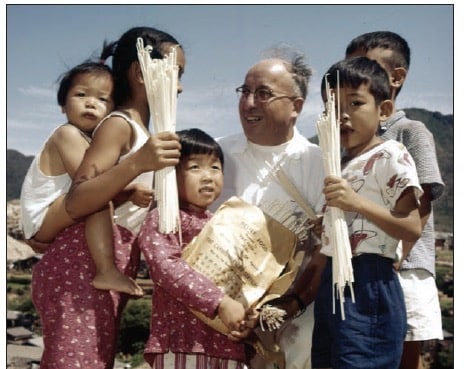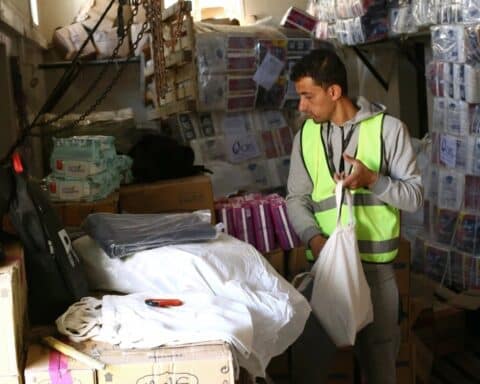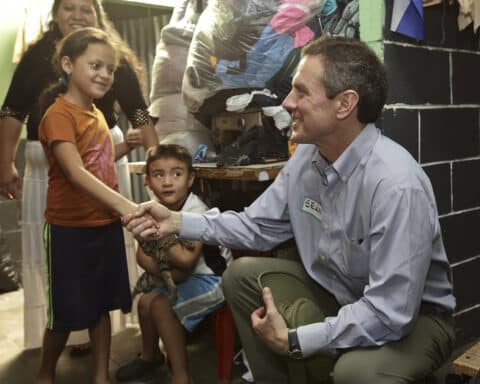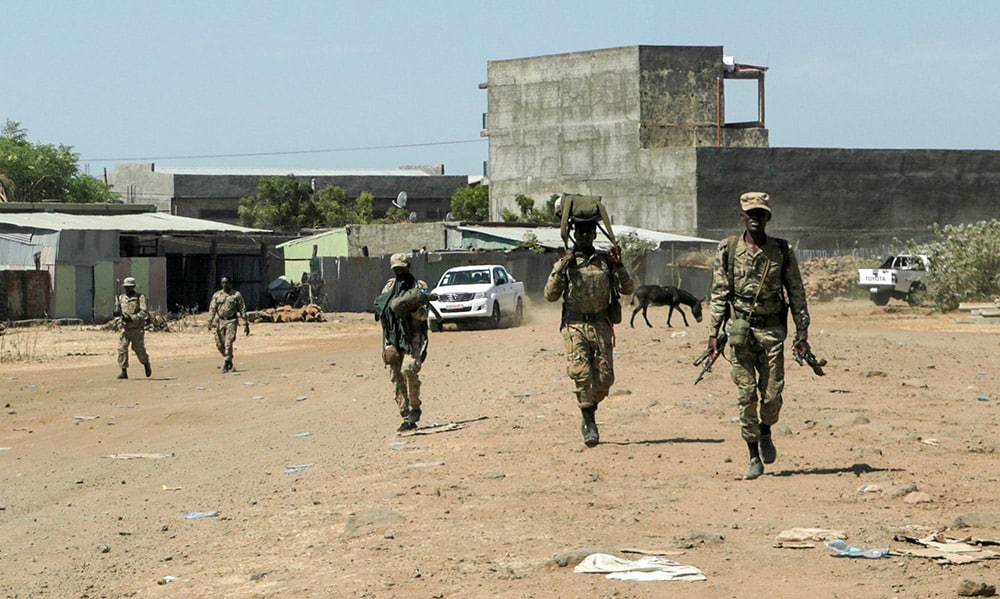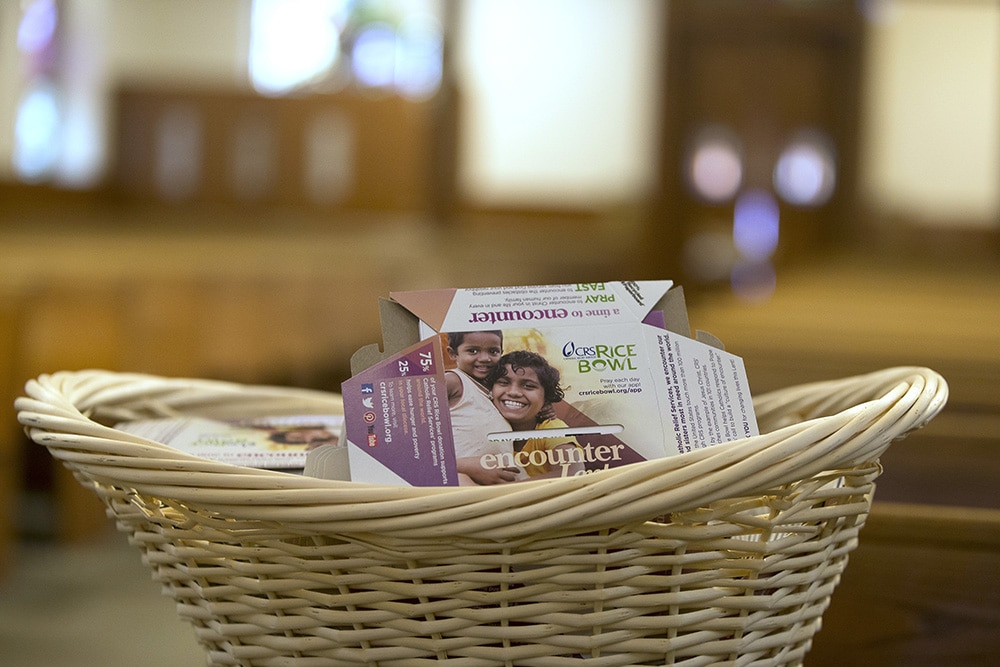It would probably be a pretty safe bet that Msgr. John Romaniello is the only Catholic Relief Services executive to get a profile in Popular Mechanics magazine — and a sure bet that he was the only one to show up on the TV game show “What’s My Line?”
It all started when Msgr. Romaniello noticed that the food assistance from the U.S. government CRS was distributing in Hong Kong was not reaching its intended recipients. That was in 1955, when the Maryknoll priest came to head up CRS’s work there. Primarily that meant caring for the hundreds of thousands of refugees from China, some still caught in the post-World War II turmoil, many more fleeing the Communist takeover.
That’s why Msgr. Romaniello left China. Born in Italy in 1900, raised in the suburbs of New York City, he was ordained in 1928 and went to China as a missionary in 1935. Forced out in 1951, he worked in the United States and in Rome, taking the CRS position in Hong Kong.
CRS was distributing U.S. food assistance, dry rations of wheat flour, cornmeal and powdered milk. But the food wasn’t being eaten by the refugees. Msgr. Romaniello couldn’t understand why until he saw a young refugee exchange her flour allotment for a packet of noodles that wasn’t worth as much. As he told Popular Mechanics in July 1964: “The problem was so obvious it was embarrassing not to have realized it immediately.”
The Chinese did not have a bread-baking culture. Most of the refugees lacked access to ovens, which required a lot of then-scarce fuel. By contrast, noodles were easily prepared in a single pan over a fire or flame, cooked with vegetables. Trading the surplus ingredients made sense.
Msgr. Romaniello studied a local hand-cranked noodle-making machine, but knew he had to turn out a lot more than its 50-pounds-a-day capacity. Showing the ingenuity that got Popular Mechanics interested, he recruited fellow priests with engineering and culinary expertise, rounded up donated scrap parts and even a surplus aircraft engine. Using trial and error, they came up with a machine that produced 500 pounds of noodles a day from a recipe that used the surplus flour, corn meal and powdered milk. The noodles went into five-pound bags stamped “Donated by the People of the United States.”
They were a hit. More machines were built. The idea was exported to countries around Asia. And Msgr. Romaniello got a moniker that would last him the rest of his life: the Noodle Priest.
Actually, by the time Popular Mechanics got interested, Msgr. Romaniello had already had a brush with the spotlight, appearing on “To Tell the Truth” in 1962. Three contestants claimed to be the same person, and members of a celebrity panel questioned them, then guessed who was telling the truth. Only Merv Griffin correctly picked Msgr. Romaniello. Kitty Carlisle, Ralph Bellamy and Betty White were fooled, White saying he seemed more like a carpet salesman.
Msgr. Romaniello certainly was a character, a colorful guy with a twinkle in his eye who would go out and schmooze people — donors, those in the community, whomever — and get them to help him with his noodle operations. Personally, I learned something of his legacy one day in the late 1960s, when I was getting on the Star Ferry to go across from Hong Kong to Kowloon. A deckhand there said to me, “So where do you work?” I said, “Catholic Relief Services.” And he said “Ah, Father Noodles, he saved my whole family’s life.” The deckhand had never met Msgr. Romaniello, wouldn’t have recognized him if he did. But that’s the impact he and his work had on people.
His impact on CRS goes far beyond making noodles. Not only did he demonstrate the ingenuity that became common among those in the field for the agency, his work was an example of what became a fundamental tenet of CRS — the Catholic social teaching concept of subsidiarity that tells us matters should be handled as locally as possible.
In a different kind of organization, Msgr. Romaniello might have been ordered by higher-ups back in the United States to forget about noodles, just hand out the dry rations. But from our beginning, CRS has worked through local organizations, many of them Church-affiliated. We listened and learned.
We didn’t just come in, hand out food and clothes and leave. We made noodles, we made small loans, we made jobs and roads and irrigation systems. Like Msgr. Romaniello, we stayed, working until we had worked ourselves out of a job.
That’s what we’ve been doing for 75 years.
Frank Carlin worked for CRS for almost 40 years, retiring in 2003 after serving overseas for 28 years.

